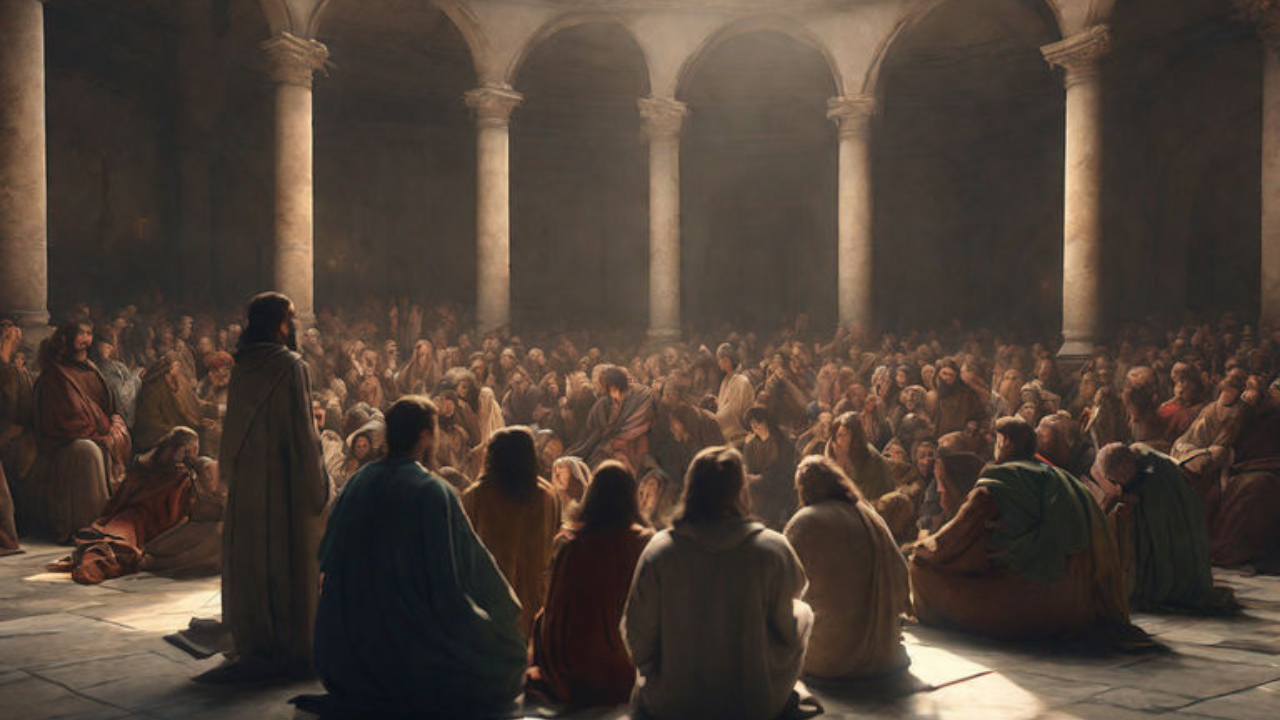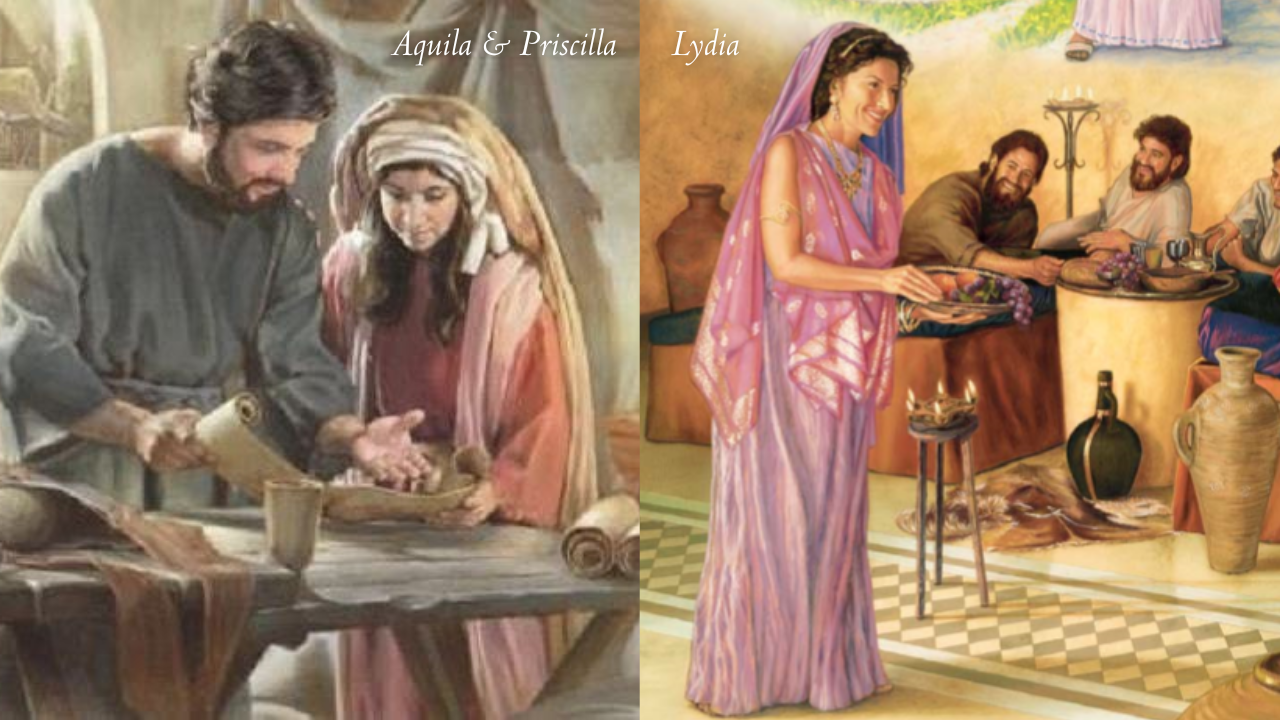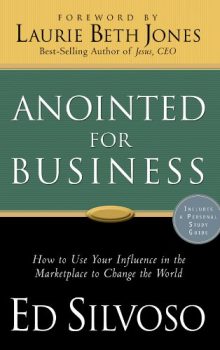Anointed For Business by Ed Silvoso
Many Christian businesspeople believe they are second-rate Christians because they’re not in full-time ministry or what is perceived as full-time ministry.
Ed Silvoso in his book, “Anointed for Business” dispels this false belief. He reveals biblical truths about how Jesus intentionally recruited marketplace businesspeople who weren’t members of the religious establishment.
His objective was to create a new social vehicle the church, ecclesia, and a governing body (read the book, Ekklesia by Ed Silvoso).
A movement that was meant to be a counterculture rather than a subculture.
Jesus’ disciples were business people.
The first picture we have of the disciples is in the marketplace where Jesus met them.
Peter and Andrew, professional fishermen, were busy casting a net into the sea when Jesus told them to follow him, Jesus next spotted James and John, partners with their father in a food enterprise. (Matthew 4:21,22).
Matthew received his calling while in his “tax office” (Matthew 9.9). Nathaniel, whom Jesus saw sitting under a tree was probably a farmer (Read John 1:8).
All of the disciples were certainly marketplace people. None of the 12 was a leader in the temple or the synagogue.
Authors of the Word
The writing of the gospels, Christianity’s most foundational documents, was entrusted not to religious scholars, but to marketplace leaders. A medical doctor, (Luke), a retired tax officer (Matthew), a partner in a food enterprise (John) and an unemployed millionaire (Mark). (pages 42-43 in book, Anointed for Business).

Non-Religious Settings
The church was not conceived in the physiological sense of the word inside a religious building such as the temple or a synagogue rather it started in the upper room of a private home.
What was the upper room like?
We can see that it must have been a very large place because 120 men and women were staying there. (Acts 1:13-15). Staying means that they took their meals and slept in them. it was just one very large room.
It is safe to assume that the upper room was possibly the largest chamber in a villa owned by one of the wealthiest men in Jerusalem. The choice of a secular venue for the gestation of the church (ecclesia) must not be overlooked.
When 3000 converts joined the ecclesia, the apostles did not busy themselves with erecting a religious building, instead they held “church” all over the city. They did it every day, several times a day (Acts 2.42).
The bulk of their activities took place in homes where they shared their possessions with those in need and took meals together and it reveals how comfortable they were in non-traditional religious settings. (Acts 5:12-15).

Businesspeople, the Backbone of the Early Church
In addition to the apostles, the human backbone of the early church consisted of marketplace leaders such as Lydia, a wealthy wholesaler of expensive fabric who had homes in Phillippi and Thyatira.
Another of the first believers was Dorcas, a designer and manufacturer of inner garments.
Aquila and Priscilla were also businesspeople. They had the same profession as Paul, tent makers (Acts 18.3). it is not entirely far-fetched to equate a tentmaker with a modern-day developer of motels.
1st century Christians did not see working in the marketplace and serving in the church as mutually exclusive activities.
2 Thessalonians 3:8 is a clear reference to the fact that Paul and his ministry team did secular work while they ministered the word. This was not an isolated instance since Paul did the same thing while in Corinth as well as in Ephesus. (Acts 18:1-3).
Luke was another prominent marketplace person. He is described by Paul as the “beloved physician” (read Colossians 4:14) an indication that he continued to practise medicine after he joined Paul’s team.

Every Business is God’s Business
All through the Bible we see how people in the marketplace, who operated under the power of God, inflicted serious damage to the devil’s empire. Joseph, Moses, Job, Gideon, David, Daniel, Esther, Elijah, Peter, Paul, Barnabas, and many others upset his evil plans.
That is why today the devil is afraid that Christians will fully fulfill their divine destiny in the marketplace and bring the Kingdom of God to it and change the culture.
This is a small excerpt of Anointed for Business by Ed Silvoso, which is a must read book for every Christian businessperson to fully understand their role in the marketplace.

Carl is a follower of Jesus Christ; Founder and Author of the Christian Discipleship and Leadership program called the Growing Deep and Strong® Series. He is also the Founder and Director of Find Your Destiny™.
His mandate is to be a catalyst and facilitator in developing people who will become leaders and disciplers of others and to create an environment that creates leaders that transform nations.

